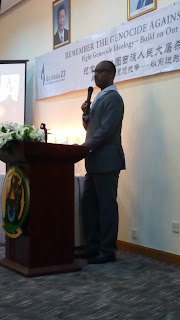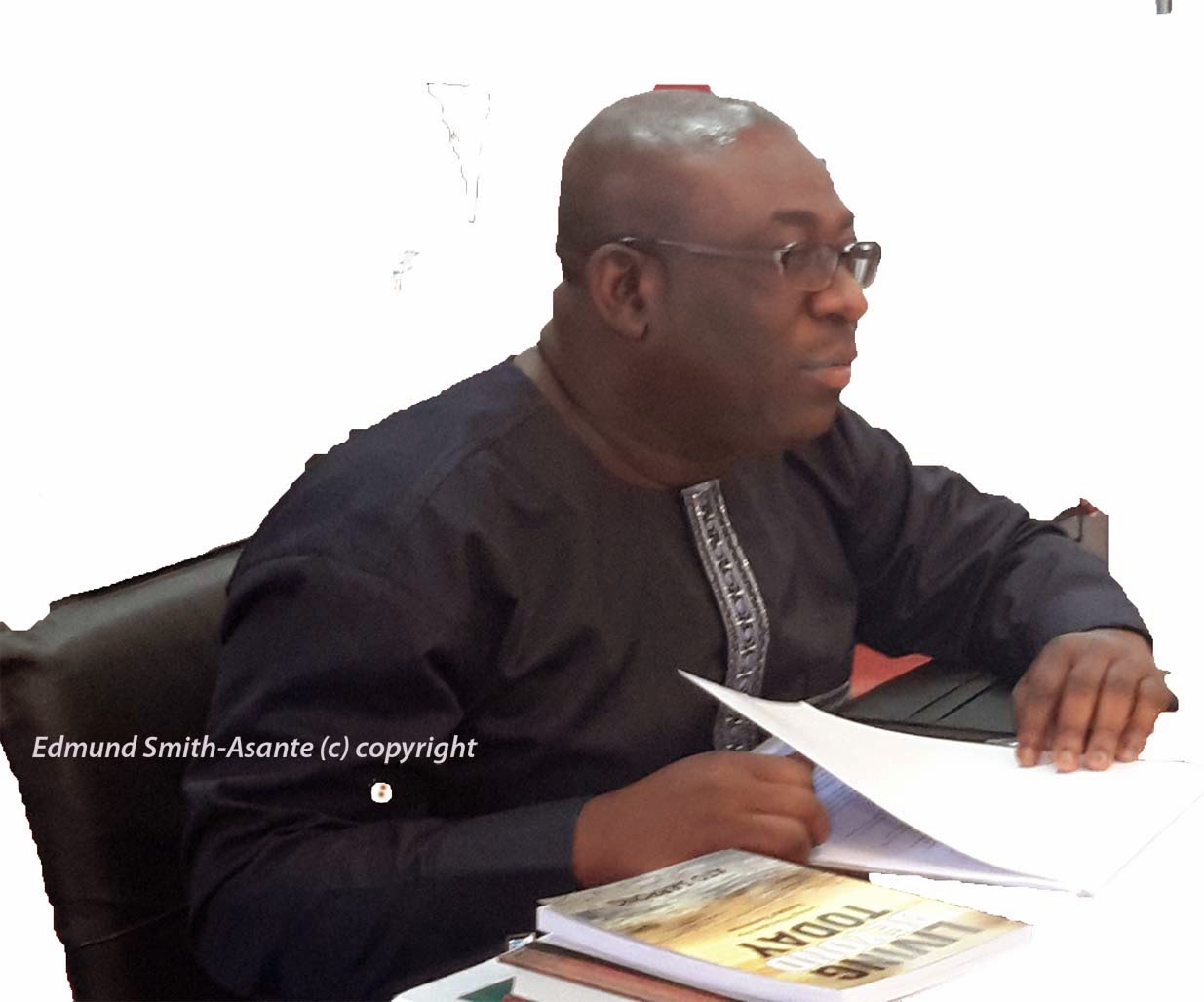Don’t play ethnic card, African media advised
By
Edmund Smith-Asante, BEIJING
African journalists have been cautioned against pushing
an agenda of ethnicity in the discharge of their duties since it had the tendency
to incite people into violence.
“Playing with ethnic issues is very dangerous because
humans are also animals and primitive to some extent so if there is incitement
people will commit crimes.
“You should be progressive as media. Luckily you are
here in China where they also teach progressive and revolutionary journalism -
a journalism that is pro-people. What is good discourages what is bad,” he
told the journalists.
Media’s
role in genocide
Speaking to the role played by the media in the
genocide in response to a question posed by the Daily Graphic, Mr. Kayonga said the media played a very big role in
making the genocide more lethal.
“In the 1960s the media was limited and technology
was low that time and people died but they were not so many and also the
population had not been sensitised to hate but in 30 years along with the
sensitisation, the growth of media and the entrenchment of the hate ideology,
it became a problem and in the 1994 genocide media establishments
professionally advised and guided people to kill.
“What has changed today is that the political
environment is different and there is unity and reconciliation. There are laws
in place that deter incitement,” he said.
While admitting that there were still some instances
of the hate ideology which resulted in the killing of some survivors of the
genocide, he said others for instance killed the cows of people with machetes
because the new legal environment prevented them from attacking other people
and embarking on violent activities.
Candles
burn for Rwanda genocide victims
 |
| Candles were burned as a memorial to the victims of the genocide. PICTURE BY EDMUND SMITH-ASANTE |
The emotional commemoration which was on the theme
“Remember the genocide against the Tutsi, Fight genocide ideology – Build on
our progress” involved the burning of candles and screening of some
documentaries on the genocide.
A victim also with difficulty shared her story while
some Rwandese students studying in China sung and did some poetry recitals.
Speaking on behalf of the diplomatic corps that were
heavily represented, the Dean of the African Diplomatic Corps and Chadian
Ambassador, Mr. Soungui Ahmed said “I am happy to learn that Rwanda has made
laws to ban divisions including the ethnic identity card. This will allow
Rwandans to identify themselves as one people and thus contribute to unity and
stability.”
Objective
Mr. Kayonga said the objective and institutionalising
of the event was to prevent genocide from ever happening again by remembering
the pain it brought the nation.
He stated that although the genocide begun in April
1994, its foundation could be traced to when Rwanda gained its independence,
when the initial mass killings started and people were forced to flee and
relocate to neighbouring countries.
He indicated that the genocide started then as a
result of ethnic and segregation politics that was pursued by the country’s
leadership then.
“Studies estimate that roughly more than one million
people were killed in the genocide in 1994,” he said.
He explained that some moderate Hutus were not
targeted because they were Hutus but because they were against the genocide and
did not participate in the killings or tried to hide some Tutsis.
Denial
of genocide
Mr. Kayonga said the commemoration of the annual
memorial of the victims of the genocide was to tell the world that the mass
killings actually took place contrary to the denial by some people.
He said those who were denying the occurrence were
those who were part of the government then and committed the genocide as well
as some key players who were not necessarily Rwandans but who did not want
their deeds to be found out.
According to Mr. Kayonga, the ultimate aim of those
in denial of the massacre, whom he referred to as revisionists was to overthrow
the current system and they were employing all sorts of ways including
undermining to do that.
Change
of constitution
He said Rwandans had mooted for a change in the
country’s constitution to allow the current President Paul Kagame run again
because they were very happy with him and what the government has been doing.
“This is a man who liberated our country. This is a
man who stopped the genocide. This is a man who has put the country on a new
level in terms of economic development, in terms of the progressive politics of
unity and reconciliation.
“This is a man who has really facilitated the
uniting of the killers and the victims and our country has a stable political
system which is favouring economic development. People are happy and they see
no reason for change and they want him to continue,” he stated.
Writer’s email: edmund.asante@graphic.com.gh
Smart Grab
Rwanda’s Ambassador to China, Mr. Charles Kayonga
has cautioned African journalists not to fan ethnic sentiments in the media
lest they incite people to violence.
This
story was written on April 9, 2017




Comments
Post a Comment